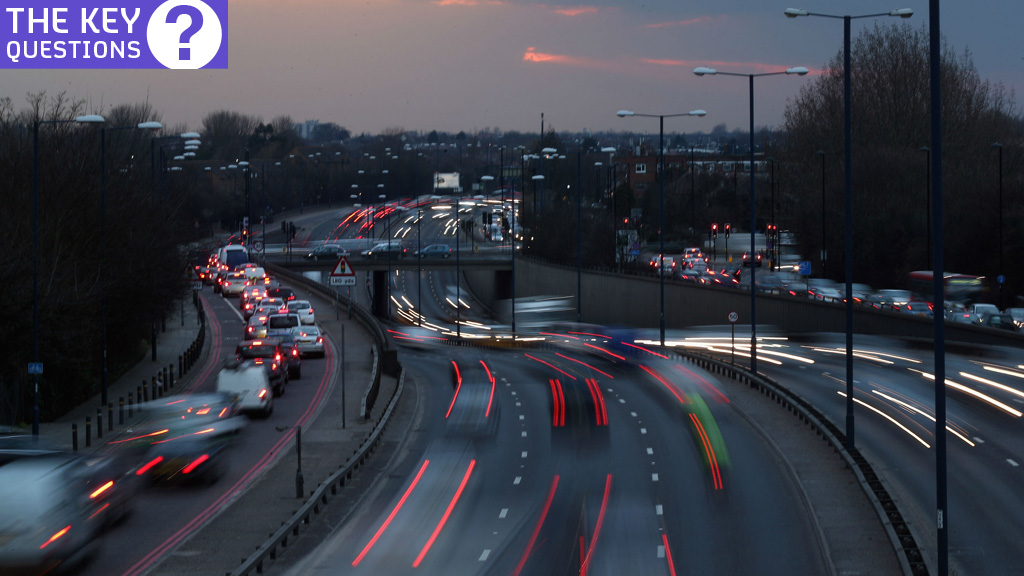New penalties for careless drivers – the key questions
New on-the-spot penalties for careless driving come into force today. Channel 4 News explains what has changed and how it may affect our 36m UK license holders.

What are the changes?
Changes come into force on 16 August, giving police greater powers to issue on-the-spot penalties for careless or inconsiderate driving.
The new legislation allows police more freedom to deal with lower-level driving offences by enabling them to issue a fixed penalty notice (FPN) on the spot when previously they would have to begin the costly process of taking offenders to court.
What was previously a £60 endorsable FPN will now increase to £100 and non-endorseable £30 FPNs will become £50 on the spot.
If the owner of a vehicle fails to identify the driver when an offence was committed, the fine increases from £120 to £200 and points will be issued. Where someone is caught driving without insurance, their fine will now be £300, an increase on the current level of £200.
What will drivers now be fined for?
From now on, those caught cruising in the wrong lane, or “lane hogging”, talking on a mobile phone, and tailgating when driving will face an immediate £100 fine.
Other endorseable FPNs rising from £60 to £100 include speeding, neglect of pedestrian rights, motorcycle offences such as carrying more than one passenger and load offences which might cause danger to passengers.
In 2011, speeding contributed to 213 deaths and mobile phone use at the wheel contributed to 374 road casualties. Department for Transport
Failure to wear a seatbelt will now merit a £100 fine but no accompanying points.
Non-endorsable FPNs increasing from £30 to £50 include handbrake turns or wheelspins, failing to display tax disks, stopping on the hard shoulder, forcing one’s way into queuing traffic, misuse of headlights, sounding the horn at night and flashing.
What are the most common motorway offences?
Over half of AA members interviewed for a survey by Populus in July said that they had never been taught to drive on a motorway, and among the over 65s, this number rose to 61 per cent.
Under the Highway Code, both the middle and outside lane are intended for overtaking only.
Seventy-two per cent of respondents failed correctly to describe lane one, with most calling it the “slow lane” or “lorry lane”.
Almost a third of all respondents (29 per cent) said that they tend to stay in lane two when driving on the motorway.
In addition to lane hogging, other common motorway offences include tail-gating, using a mobile phone at the wheel and inappropriate use of the hard shoulder.
Who are the worst offenders?
It is hard to say, and the Department for Transport says it does not collect statistics on the kinds of individuals or vehicles more likely to drive carelessly or cause problems on our roads.
However, the Populus survey puts younger drivers in the spotlight.
Among 18 to 24-year-olds, over 40 per cent said they cruised in the middle lane on a regular basis and one in 10 said they tended to stick in lane three – the “fast lane”. Bad practice is across the board, however, with only one in five of all survey respondents correctly identifying this lane as designed for overtaking only.
Under the new rules, an FPN will remain a conditional offer, which means that the driver can accept guilt, pay the fine, take the points and close the matter, or reject the offer and appeal, in which case they will be called to appear in court.
The police will continue to offer educational training courses as an alternative to accepting the fine and points.
How will the new rules make the roads safer?
Endorsable road traffic offences contribute to a significant number of casualties. In 2011, excess speed contributed to 213 deaths and use of a mobile phone while driving contributed to 374 road casualties, according to the Department for Transport.
Fixed penalty levels for most of the motoring offences detailed above have not increased since 2000, making them lower than other penalties of a similar severity.
Road Safety Minister Stephen Hammond said: “Careless driving puts innocent people’s lives at risk — that is why we have made it easier for the police to tackle problem drivers by allowing them to immediately issue a fixed penalty notice for low level offending rather than taking these offenders to court.”
Alongside wanting to update policy, the government intends the changes to make motorists more aware of their conduct and its impact on others, which it hopes will ultimately contribute to safer roads.
-
Latest news
-
What do Tory heartland voters want? A view from East Sussex4m

-
IDF ‘tactical pause’ to allow Gaza aid criticised by Israel leader Netanyahu3m

-
Social media ‘part of the problem’ in undermining politician security, says former MP5m

-
Conservatives and Labour under pressure to explain NHS plans3m

-
Euro 2024 shooting: man with axe shot by Hamburg police3m

-




